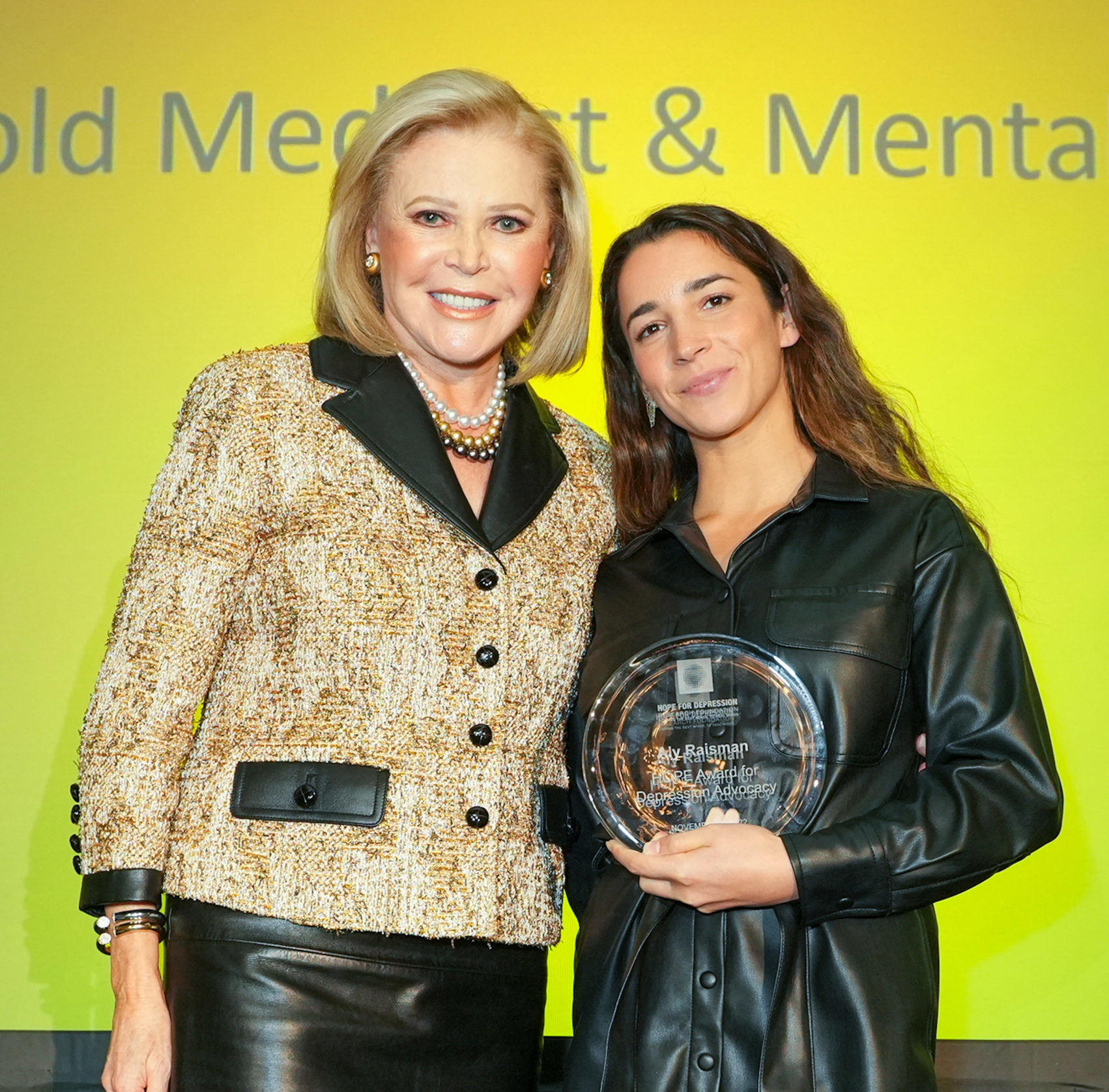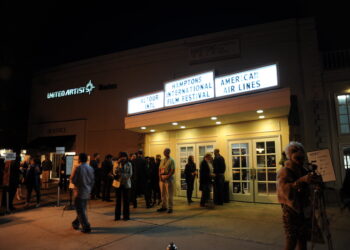
The country’s leading non-profit dedicated to advanced depression research, Hope for Depression Research Foundation (HDRF), held its 16th annual HOPE luncheon seminar at The Plaza Hotel. The seminar focused on “Teenagers and Depression: Addressing the Youth Mental Health Crisis” and research highlights from the HDRF’s renowned Depression Task Force. The event drew nearly 300 guests and raised over $500,000 for life-saving mental health research.
The medical keynote speaker, Dr. Angela Diaz, Professor in Adolescent Health at the Mount Sinai School of Medicine and Director at Mount Sinai Adolescent Health Center, delivered the keynote speech. First, she shared the staggering statistics. In 2021 the CDC said that more than a third of high school students reportedly experienced poor mental health during the COVID-19 pandemic. Dr. Diaz noted that at the height of the pandemic in May 2020 she conducted a monthly survey at the Mount Sinai Adolescent Health Center and found one-third of her patients were clinically depressed. This represented a 20% increase from before the pandemic. She went on to state that depression is very common in the overall population, and that 20% of major depressive disorders start during adolescence with 4- 8% having the disorder. She spoke about the signs of depression in teens and what one can do to help.
HDRF Executive Director Louisa Benton spoke about how the Hope for Depression Research Foundation has built national awareness. Benton went on to discuss the incredible research breakthroughs of the HDRF Depression Task Force. The Task Force is leading the field in the study of brain circuits and molecules that underlie depression, Benton said. As a result, HDRF has a brand-new category of medication now in pilot clinical trials at Mount Sinai and Columbia, with a new site recently added at Stanford University.
Jamee and Peter Gregory accepted the 2022 HOPE Community Award for their unwavering commitment to spreading mental health awareness and supporting HDRF since its inception in 2006.
Audrey Gruss then presented Aly Raisman with the HOPE Award for Depression Advocacy. “And now I’d like to introduce someone of outstanding poise and courage,” she said. “Aly Raisman is a champion leader on and off the mat. Aly was the team captain of the gold medal-winning women’s gymnastics team in 2012 and 2016, and she’s the third most decorated American gymnast of all time. Aly used her fame as a platform to be open about her struggles with anxiety, depression, and PTSD, and to spread hope and understanding.”
Aly Raisman took the stage to speak about her struggles with depression and anxiety.
Aly spoke about competing in the Olympics and the pressure to compete again, feeling like it was never enough. She continued: “I knew that I was struggling behind the scenes with being a survivor of abuse and going through my own mental health struggles. I also was struggling with, have I done enough? Is it okay that I don’t want to do gymnastics anymore?”
She noted having anxiety at a very early age and remembered being anxious, wanting to be with her parents and afraid to go to sleep at night, but never talking about it. She said: “I think that my anxiety got worse because gymnastics is one of those sports where you’re striving for perfection, and you’re taught from a very young age that no matter how well your beam or floor routine was, it didn’t really matter.”
She talked about her journey to feeling better and the importance of understanding one’s triggers. She said, “That’s why I can’t stress enough the importance of talking about mental health in schools, in sports, so that kids can ask these important questions, even if they are not sure…Because without creating a safe environment, where kids feel they can ask questions, the problem is going to continue to perpetuate.”
She went on to speak about how anxiety can feel like reality when it’s not, and the importance of having a community and a safe place where somebody — whether a therapist or a friend — can remind you of your worth. She talked about sharing her story as a survivor of sexual abuse, feeling triggered when people would try to ask her invasive questions.
Aly concluded: “You don’t have to have all the answers if someone comes to you, or you want to ask your child or another person if they’re okay. Just know that just being there and showing up and asking them what they need will go such a long way.”
Each year, the HOPE Luncheon Seminar is held at the Plaza Hotel in New York City and is attended by over 300 top New York philanthropists, asset managers, business and media professionals, socialites, and celebrities who gather to raise awareness about depression and its related mood disorders as well as funds for continued research.












